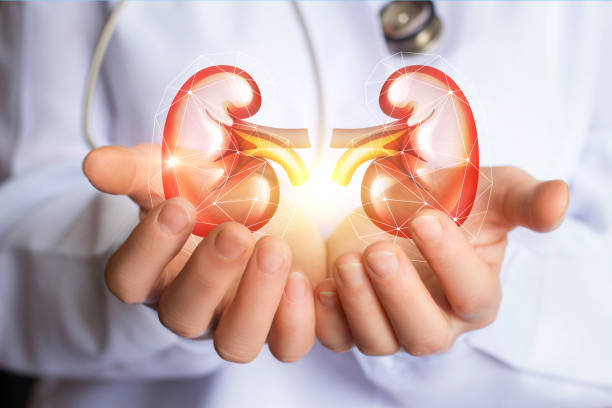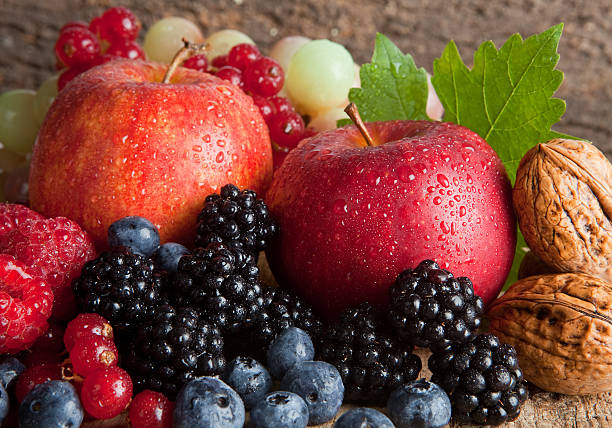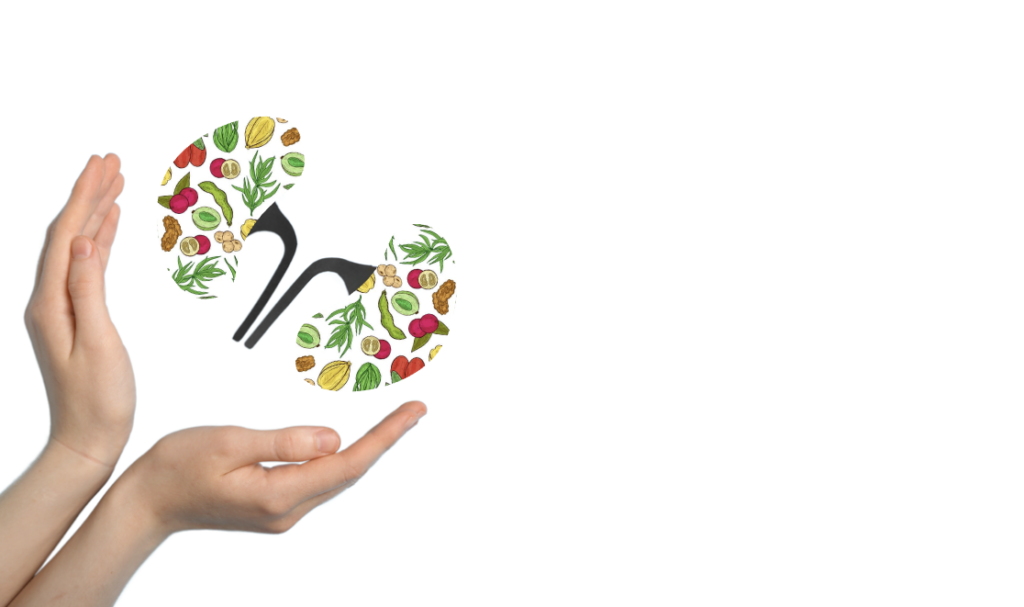What to Eat and Drink
Superfoods For Healthy Kidneys
Following a healthy diet is important for your general health, but it’s even more important for kidney health. Your kidneys are very important because they clear out waste and extra water from your blood. Some foods can help them do their job and keep your kidneys healthy. Many superfoods are good for your health in general, but this article will focus on those that are especially good for your kidneys. These foods are full of antioxidants, vitamins, and other important nutrients that help protect against damage from oxidation and inflammation, which can make chronic kidney disease (CKD) and other health problems worse.
The Importance of Kidney Health
Before we talk about the best superfoods for kidney health, let’s talk about why it’s so important to keep your kidneys healthy. The kidneys do many important things for the body, like getting rid of waste and extra fluid, keeping chemicals in balance, managing blood pressure, and making hormones that control the production of red blood cells. When the kidneys aren’t working properly, waste can build up in the blood, which can cause a number of health problems, including kidney disease.

Slowly, people with chronic kidney disease (CKD) lose the ability of their kidneys to do their job. This is more likely to happen to people with diabetes, high blood pressure, or some genetic diseases. People with CKD have swelling and are more likely to get heart disease. A diet full of superfoods that are beneficial for your kidneys can help you control CKD, lower inflammation, and improve your general kidney health.
Understanding Oxidation and Free Radicals
To understand how superfoods can help your kidneys, you need to know about oxidation and free radicals. Oxidation is a normal process that happens in the body to make energy and help different chemical reactions happen. On the other hand, too much oxidation can make molecules known as free radicals. These chemicals are not stable and can damage proteins, genes, and cell membranes in the body. People think that free radicals play a part in getting older and getting chronic diseases like cancer, heart disease, and neurological diseases like Parkinson’s and Alzheimer’s.
Antioxidants, which are found in large amounts in vitamins, help fight free radicals and lessen the damage they do. Antioxidants can stop or slow down oxidation caused by free radicals, even in small amounts. Flavonoids, lycopene, vitamin C, vitamin E, and beta-carotene are all popular antioxidants.

Incorporating Superfoods into the Kidney Diet
It’s very important to talk to a renal nurse and follow an eating plan that is good for your kidneys if you have kidney disease or are on dialysis. Managing inflammation, lowering the chance of heart disease, and keeping nutrients like potassium, phosphorus, and sodium levels in check are the main goals of the kidney diet. Adding superfoods to your kidney diet can help you get more nutrients, protect your kidneys from damage, and improve your general health.
You should know that the superfoods this article talks about are good for everyone, not just people with problems with their kidneys. By adding these things to your family’s meals, you can also help them stay healthy.
Now, let’s explore the top 15 superfoods for kidney health:
Red Bell Peppers
Because they are low in potassium, red bell peppers are a great choice for people who are worried about their kidney health. They also have a lot of fiber, vitamins A, C, and B6, and folic acid. The antioxidant lycopene, which is found in these bright veggies, is known to help fight some types of cancer. Red bell peppers are easy to include in your kidney diet. You can eat them raw with dip, add them to soups, or mix them into tuna or chicken salad. You can also roast them and put them on sandwiches or green salads, chop them up and put them in egg dishes, or stuff them with ground beef or turkey and bake them for a tasty main meal.
Broccoli
As a cruciferous veggie, cabbage is full of phytochemicals that fight free radicals and keep your heart healthy. Vitamins K and C are high in it, as well as fiber. Vitamin B6 and folic acid are also found in good amounts. As part of your kidney diet, you can eat cabbage by making a salad or putting it on fish tacos. Other ways to cook it are to boil, steam, or nuke it. Add a little butter or cream cheese and enjoy. Cabbage rolls and stuffed cabbage are two other healthy meal choices.
Cauliflower
Cauliflower, which is a cruciferous veggie, is also good for your kidneys. It has lots of fiber, vitamin C, and folate, and it also has chemicals that help the liver get rid of harmful substances. You can eat cauliflower raw with a dip, add it to salads, or cook it and season it to serve as a side dish. It can also be mashed instead of mashed potatoes on a dialysis diet to make it healthy.

Garlic
Garlic not only makes food taste better, but it’s also good for you in many ways. It helps reduce inflammation, lowers cholesterol, fights free radicals, and stops blood from clotting. You can put garlic in a lot of different foods, like meat, veggies, or tomato sauce. If you want to add more taste to your food without adding more sodium, use garlic powder instead of garlic salt.
Onion
A lot of people use onions as a spice. Onions are full of flavonoids, especially quercetin. Flavonoids are natural chemicals that are good for reducing inflammation and stopping fat from building up in blood vessels. Onions have a lot of chromium, an element that helps the body break down fats, proteins, and carbohydrates. They are low in potassium. You can eat them raw, cooked in burgers, sandwiches, salads, or as a topping for food before caramelizing them.

Apples
Not only are apples tasty and easy to use in many ways, they are also great for your kidneys. They have a lot of fiber, antioxidants, and substances that reduce inflammation. Apples may help lower cholesterol, keep you from getting constipated, protect against heart disease, and lower your risk of getting cancer. You can eat them raw, cook them, or even make juice or drink out of them.
Cranberries
People know that cranberries can help keep you from getting urinary tract infections. They raise the acidity of urine, which stops germs from sticking to the inside walls of the bladder. Cranberries may also help keep you from getting cancer and heart disease. Cranberries can be made into cranberry juice, dried and added to cereal or soups, or served as a side dish during the holidays.
Blueberries
When it comes to antioxidant power, blueberries are at the top of the list for fruits and veggies. This makes them a great choice for people with kidney disease because they are low in sodium, phosphorus, and potassium. Vitamin C, fiber, and iron can all be found in large amounts in blueberries. Researchers have looked into how they might help protect against cancer, heart disease, and the loss of brain function that comes with getting older. You can eat blueberries by themselves, mix them into cereal, or make a fruit drink with them.
Raspberries
In raspberries, you can find ellagic acid, which helps fight free radicals, and anthocyanins, which give them their red color. Fiber, vitamin C, and iron are all in large amounts in them. Raspberries may stop cancer cells from growing and stop tumors from forming. Fresh raspberries can be added to breakfast, made into a fruit smoothie that is good for your kidneys, or eaten on their own as a healthy snack.
Strawberries
Strawberries have a lot of antioxidants, like vitamin C and anthocyanins. They also have a lot of iron, fiber, and folate. Strawberries can help keep your heart healthy and reduce inflammation and cancer. You can put them in cereal, make a fruit drink with them, or eat them with cakes like pound or angel food cake.
Cherries
Cherries are full of phytochemicals and antioxidants that are good for the heart and lower swelling. Eating cherries regularly has been shown to reduce swelling. You can eat fresh cherries as a snack or add them to different foods, like lamb or pork with cherry sauce.
Red Grapes
Flavonoids, which are found in red berries, help stop oxidation and blood clots from forming. They are good for your heart and can help fight cancer and inflammation. Most flavonoids are found in grapes with red or purple skin. You can snack on grapes, put them in fruit or chicken salad, or drink grape juice.

Egg Whites
These are a great way to get high-quality protein, and they have less calcium than egg yolks or meat. They have all the important amino acids and are good for your kidneys. Egg whites can be added to salads, soups, and drinks, or used to make omelets.
Fish
A great way to get high-quality protein and omega-3 fatty acids is by eating fish. Which helps reduce inflammation. Omega-3 fatty acids help keep you from getting heart disease, cancer, and other illnesses. Choose omega-3-rich fish like salmon, mackerel, or trout. For the best health, the American Heart Association says to eat fish at least twice a week.
Olive Oil
This is a good source of polyunsaturated fats, like oleic acid, which helps reduce inflammation. A lot of antioxidants, like polyphenols, are also found in it. These help stop inflammation and damage. For the most antioxidants, use extra virgin olive oil. Olive oil can be used to cook, eat with salad, or dip bread in.
Conclusion
Adding superfoods to my diet has changed everything, especially for my kidneys. Finding out how good garlic, onions, berries, fish, and other foods are for you has not only made my food taste better, but it has also filled my diet with vitamins and important nutrients. It’s important to me that every bite helps protect my kidneys from chemical damage and inflammation. I think everyone who is going through the same thing should talk to a kidney dietitian about how to make food choices that fit their specific needs. Eating these “superfoods” every day is what I’m doing to take care of and improve my kidney health.


